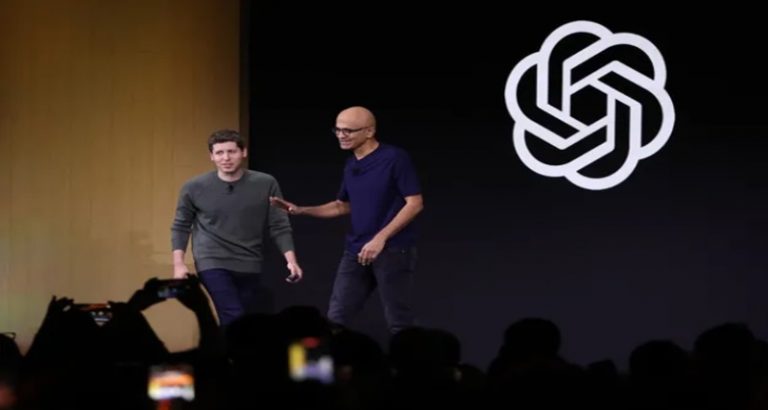
Microsoft’s large-scale investment in OpenAI is starting to affect its financial results, revealing the depth of commitment required to sustain cutting-edge advancements in generative AI.
Following its quarterly earnings report on Wednesday, Microsoft disclosed it anticipates a $1.5 billion hit to its income in the current period, primarily due to its OpenAI partnership, as the AI company continues to operate at a substantial loss. While OpenAI has seen remarkable growth in demand for its products, its operational expenses have outpaced its revenue, leading to an expected $5 billion in losses on $4 billion in revenue this year, per recent reports.
The financial situation at OpenAI underscores the high costs of generative AI development, which involves intensive computational demands, ongoing research, and attracting top-tier talent. While OpenAI has demonstrated phenomenal capabilities with its GPT models and ChatGPT, it lacks a clear timeline for profitability. This means Microsoft’s massive investment—approximately $14 billion so far—will likely take years to recoup.
Tekedia Mini-MBA edition 16 (Feb 10 – May 3, 2025) opens registrations; register today for early bird discounts.
Tekedia AI in Business Masterclass opens registrations here.
Join Tekedia Capital Syndicate and invest in Africa’s finest startups here.
CFO Amy Hood indicated that the losses are recorded under the equity method of accounting, where Microsoft recognizes a proportional share of OpenAI’s profits or losses. Consequently, Microsoft’s financial exposure grows as OpenAI continues its ambitious expansion, including scaling up model production and developing even more advanced AI.
Microsoft’s decision to wait for a return on investment (ROI) signals its willingness to take on long-term risk in exchange for strategic positioning at the forefront of AI technology. Microsoft CEO Satya Nadella has emphasized that, despite the financial burden, the OpenAI partnership remains central to Microsoft’s innovation goals.
Microsoft has successfully incorporated OpenAI’s models into flagship products such as Microsoft 365 Copilot, Azure’s AI offerings, and GitHub Copilot, which collectively draw a revenue stream from these new AI-powered functionalities. While these integrations are promising, profitability from OpenAI itself may remain elusive in the short term due to high operational costs and the enormous scale of computational resources required.
In an effort to diversify its options, Microsoft has begun incorporating other AI models into its offerings to enhance flexibility and broaden its AI ecosystem. Its GitHub subsidiary recently announced that developers will have the choice to use models from Google or Anthropic, an OpenAI rival, to power GitHub Copilot Chat instead of GPT-4. This move broadens Microsoft’s AI capabilities while maintaining exclusivity with OpenAI as its core infrastructure provider. Such strategic flexibility positions Microsoft to remain competitive as the generative AI landscape evolves, especially as rival tech giants like Amazon and Google increase their own investments in AI startups.
Microsoft’s OpenAI investment is part of an industry-wide scramble to lead the AI revolution. Amazon, for example, recently invested $4 billion in Anthropic, whose team includes former OpenAI employees. This competitive environment reinforces the appeal of generative AI as a transformative technology, yet it also highlights the substantial capital and patience required as firms race to optimize AI profitability. Microsoft’s substantial investment in OpenAI, alongside its recent additional $750 million injection, now values the AI company at $157 billion, underscoring how essential Microsoft views AI to its future growth.
Despite reporting stronger-than-expected earnings, Microsoft’s shares fell after the company issued a forecast for slower growth, a response in part to high AI investments that place immediate pressure on profitability. The company has incurred over $2.3 billion in expenses related to the OpenAI partnership in the past four quarters alone. However, Nadella has assured investors that the collaboration is paying off by creating unique intellectual property and driving revenue in new AI product segments.
Ultimately, Microsoft’s OpenAI partnership reflects a long-term commitment, where immediate ROI takes a backseat to strategic positioning in an increasingly AI-driven market. This extended timeline for profitability means Microsoft is playing the long game, investing now in the belief that the eventual returns from AI will be transformative not only for Microsoft’s revenue but also for its competitive advantage.
Whether this investment will yield anticipated gains remains an open question, but Microsoft’s proactive approach and strategic patience signal its dedication to harnessing the potential of generative AI, even as profitability remains on the distant horizon.



